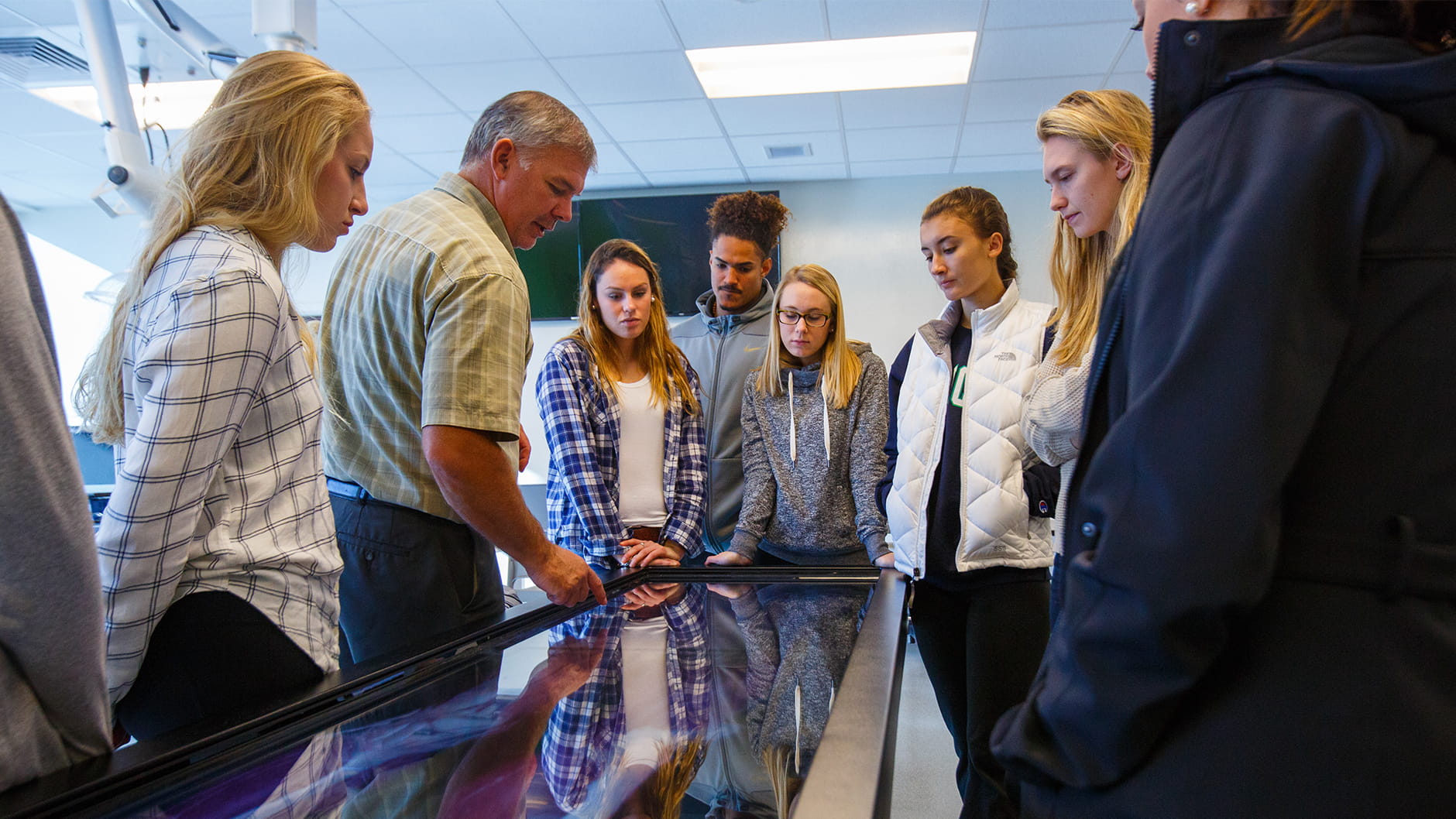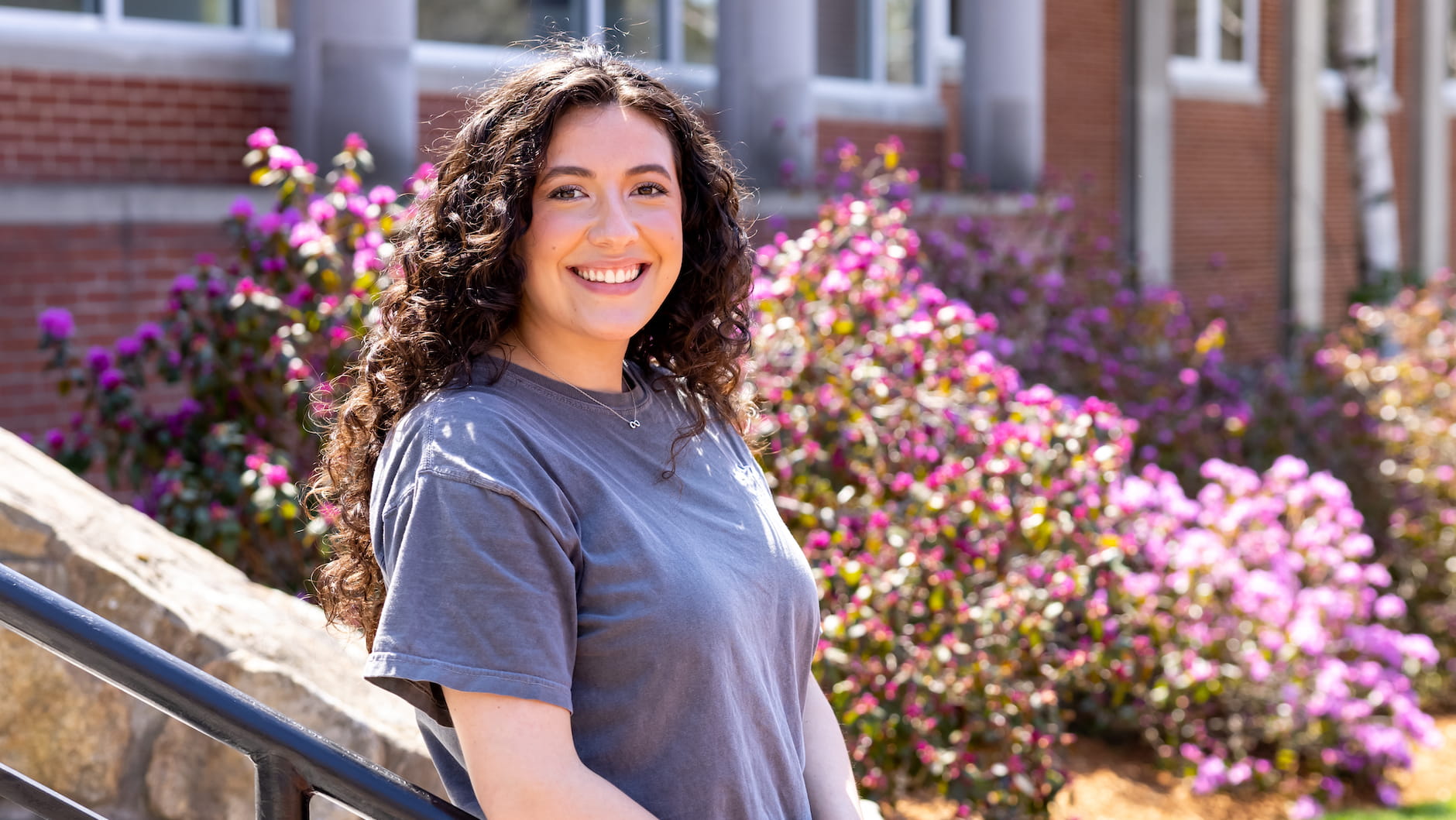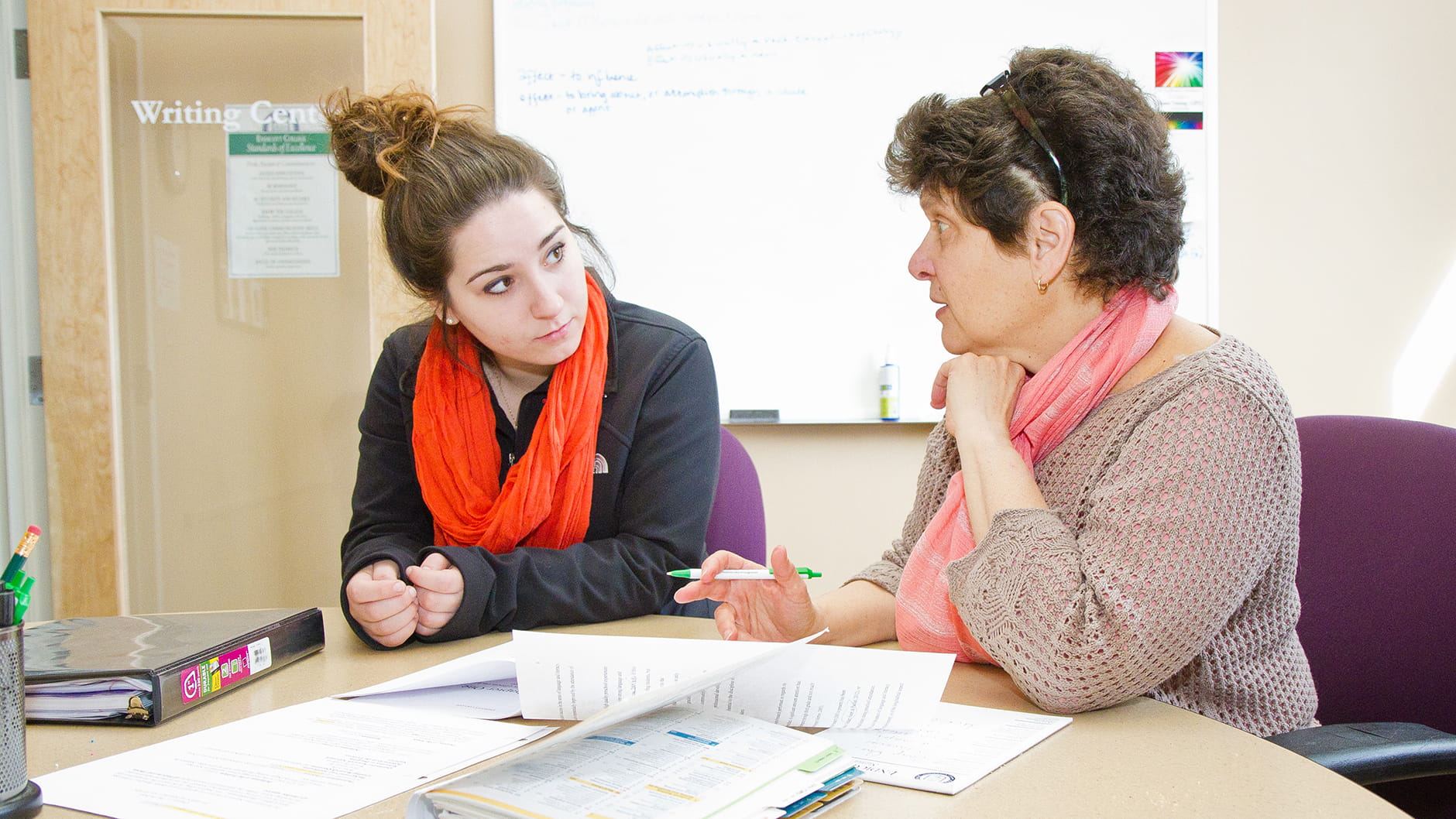While everyone in the world is scrambling to understand what the “new normal” will look like, Endicott is doing what we’ve always excelled at—pioneering. From instructors bringing the same rigor from their on-campus courses to their online ones, to students connecting with both younger and older generations, and to making our content creation more inclusive on all levels, let us tell you how our community is reinventing connection.
Coursework Online
Many of our teachers are bringing online into a new, exciting realm. One such individual is our Adjunct Professor Dr. Josie Schoel who recently gave an interview to 1623 Studios where she talked about the experience of teaching online for Endicott since we moved to remote teaching and learning.
While the video interview she gave acknowledges that the move to online teaching has brought challenges, Schoel says that Endicott provided her with the time and training she needed to prepare for the transition. She is happy to report that her mostly first-year students in her ENG112 Critical Reading and Writing II and Intro to Literary Studies classes have really stepped up and are participating actively and thoughtfully in her classes. It is clear that genuine learning is still taking place, even in the new, online space.
In the video, she explains, “I am doing these very short bite-size mini lectures. For example, in my literature class, I'll do a mini lecture on modernism and then another lecture on examples, rather than having a 20-minute lecture that they have to watch. I try to make it more accessible and hopefully more interesting for the students.
She continues, “There are studies that say students and people in general can usually…pay attention for about seven to 10 minutes at a time before things need to be changed up. I usually lecture for about maybe 10–15 minutes or a little bit longer, and then I have some group work and then an activity or an in-class discussion. I think it's important to replicate that kind of breaking up of the classroom session in the online forum as well.”
Another such pioneer with remote learning is Adjunct Professor, Jeffrey Marshall. Students in Marshall’s ART 207 Color Theory & Light, and ART 241 Figure Drawing: Anatomy for Artists courses have been able to follow along with his step-by-step videos to demonstrate the projects. In addition, he and the students utilize software functions allowing participants to draw on screen during live critiques.
 A digital drawing demonstration by Jeffrey Marshall, using Autodesk
A digital drawing demonstration by Jeffrey Marshall, using Autodesk
Sketchbook and work by Aleksandra Tsangarides from ART 241 Figure
Drawing: Anatomy for Art, Layered Self Portrait.
Marshall says, “I desperately miss teaching in a classroom surrounded by students, tripping over easels and hunting for those extra-long aluminum pushpins. But, going online has had some very clear benefits to my teaching practice; ones I plan to incorporate into my on-ground instruction. While nothing replaces teaching on campus, I can see that teaching online has helped me identify the individual needs of my students.
He continues, “Online teaching has provided me, and the students, with a greater variety of communication tools. This includes more writing to each other, which encourages a thoughtful clarity that can be missing in the classroom. While writing has always been part of my coursework, adding it to the more casual interactions has allowed me to react to student needs more effectively.”
Relay for Life
Endicott’s Relay for Life is one of the most anticipated and celebrated events that takes place on our campus. This year, when the committee received the news that in-person events were being canceled, instead of letting the event fall apart, they reimagined it.The committee’s original goal was to raise $50,000. In total, by bringing the events online, they were still able to raise $27,000 for to fight back against cancer. Typically, they tend to raise a lot of funds during the week leading up the event and at the event with various fundraisers and day-of registration donations, so to get over halfway there with no in-person contact was wonderful. One team even raised over $4,000 and one individual raised $2,500 on their own.
We believe that these changes are going to make next year’s Relay for Life committee even stronger. Once the event comes back to campus, some of the innovations from this online time will stay and supplement the efforts.
The use of social media promotion and engagement exploded during this year’s Relay for Life. The committee used everything from Facebook Live for the speeches and to video content for hype social to digital events with real prizes. All the efforts were well-received.
Assistant Director of Student Activities Alyssa Laurenza says, “We had really positive feedback from people who aren't usually able to attend the event because of distance, were able to watch live or participate virtually.”
She continues, “We also found it was extremely successful to have a virtual luminaria. Moving forward, we will most likely continue to provide our followers with an image of a luminaria bag that they could post on their own social media.
“Finally, our virtual raffles were a hit and we have already talked about having some raffles available for virtual participants. Those prizes would be more generic so that individuals outside of the North Shore would be able benefit from the prizes.”
Putting the “Community” Back in Community Service
If you have ever set foot on our campus or interacted with a Gull online, you probably know that community service is an incredibly important, typically contact-heavy part of what it means to be part of our academic family. However, as contact isn’t really possible right now, our Office of Community Service found ways to help anyway!For instance, the popular Big Brother Big Sister program has gone completely virtual. Director of Community Service Andrea Rhoades says, “All 17 of our Big Brothers and Sisters are meeting with their littles weekly and interacting in diverse and creative ways based on their own interests and passions. Activities have included Zooming together to take tours to virtual museums and farms, playing games like musical bingo, hangman, and video games, and working together on homework and drawings.”
She continues, “Littles, their parents, and Bigs have all vocalized how thankful they are to stay connected and continue to build their relationships. Parents have mentioned it has truly helped their children adapt to this current new way of life.”
This once, semi-heavy, off-campus commitment has become much more accessible for both the volunteers and participants. We think that in the future, visits can become a hybrid effort with some visits taking place in person, and others happening online. We expect this to increase the numbers of students willing to be Bigs.
Other community service programs have embraced online engagement as well. For instance, the Endicott College Buddies, a student-run club committed to fostering friendships between college students and young adults with intellectual and developmental disabilities, has created a heavily engaging Facebook group with themes like "Motivational Mondays" where they share good news and "Fun Fridays" where they post pictures and interact. Some pictures have included well-loved pets.
Beyond the established programs, new ones have also come about. They include Senior Connections, Laughs for Make-A-Wish, and Live Service Programs on Zoom.
Rhoades says, “We have 16 students currently being matched to become a virtual buddy with homebound seniors in partnership with Harborlight Affordable Housing. The goal of the program is to provide students and senior residents an opportunity for connection during this difficult period.
“On April Fool’s Day, over 20 students videotaped themselves telling jokes, which were then shared with hospital-bound children through the Make-A-Wish Foundation.
“Live service programs on Zoom such as Endicott Service Club and Endicott Wishmakers teamed up to do a live card making party where students made over 100 cards for hospitalized seniors, children, and thank you cards for frontline workers, and the Service Club also hosted an event where students were able to play free online games together to raise funds for local charities such as UNICEF for Change and Free Rice.”
After the stay-at-home order has lifted, the Office of Community Service and many charitable clubs on our campus plan to take what they have learned about virtual connection and integrate a number of new elements into their programming moving forward. That newfound host of tools will allow our students, faculty, and staff to offer more diverse programs with various levels of engagement to fit peoples’ needs, schedules, interests, and availability.
Rhoades says, “Some students just do not have the time to leave campus or volunteer for sustainable initiatives because they may be working, have a complex athletic schedule, working on a double major, etc. Because of this we plan to start implementing some virtual service opportunities which we feel will add a whole new leg to our programming.”
If you would like to learn how you can be a part of this new wave of community impact, please contact arhoades@endicott.edu.
Higher Education Content
As the famed Greek philosopher Plato once said, “Necessity is the mother of invention.” That has certainly been the case in recent months throughout the Endicott community, and specifically across our Communications & Marketing team.Executive Director of Marketing Integration Rob Palardy says, “Times have forced us, like many higher ed providers, to change our way of thinking to hit key metrics. For instance, bringing historically-loved, in-person events online means more than implementing Zoom.”
He continues, “Our team has worked together on all fronts to bring full experiences like Accepted Students Day online, and while we look forward to more in-person events in 2021, we will be taking notes of what worked to add on to that on-campus success.”We Are Here
One of the first ways we reached out to our community in the wake of the coronavirus move off campus was to send out a simple message: We Are Here. We are here for anyone and everyone who needs us, and we look forward to a future the challenges us on all levels, allowing us to grow into our ultimate selves alongside others who are doing the same.


